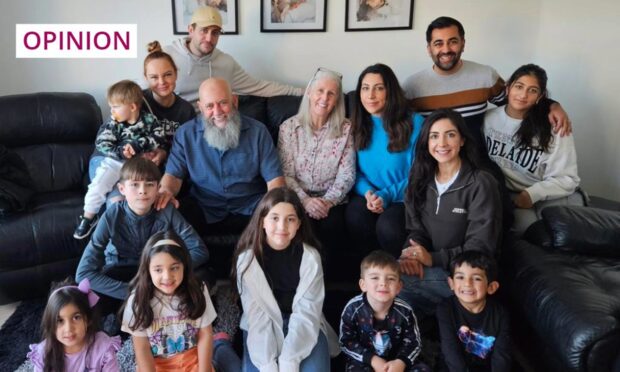My dad always used to say that good gear comes in wee bulk.
Like me, he was vertically challenged, so I guess he did have a certain amount of skin in the game. Nonetheless, there is truth in his assertion.
In many ways, it’s better to be wee than to be big. As a wee person, you can squeeze unnoticed through gaps. If you trip, you don’t have too far to fall, reducing the risk of injury. You need never bang your head off door lintels or low-hanging light fixtures.
You can’t be a professional footballer (I’m talking under five foot five here), so you don’t knacker your knees or earn stupid amounts of money that makes you unhappy. Truly, it’s a win-win.
My feeling has always been that this maxim applies to countries, too. Wee countries are better than big countries. Wee countries don’t get all swaggery and above themselves. They can’t afford to. They need to cooperate with their neighbours because they know they can’t fulfil all their own needs.
Wee countries don’t say things like: let’s leave the world’s largest trading bloc and to heck with the consequences. Foreigners – who needs them? We can pick our own fruit and wipe our own bums.
Of course, that particular folie de grandeur was compounded by the over-confidence that only a public school education can buy. Perhaps the single most salient revelation to come out of the Covid enquiry is that – quelle surprise – a government stuffed full of people who went to public school doesn’t make very good decisions. How could it?
We’re talking here about people who don’t have a scooby about what life is like for the merely comfortable never mind the financially challenged. It’s pretty nutty, really, to put them in charge of the country, but the UK keeps doing it.
Scotland knows the benefits of being small
The madness that too often comes with big reaches its apotheosis in those countries that truly can more or less fend for themselves: the USA, Russia, China. If you have everything you need in your own country – or nearly everything – it’s all too easy to take your ball home if some other snotty country rubs you up the wrong way.
Russia – tragically – has already done that. The USA might do it too, if its great democracy coughs up another Trump presidency next year. China, prickliest of bedfellows for capitalist and socialist alike, sits brooding on the western side of the Taiwan Strait, weighing its interests, wondering how much it can afford to alienate the crumbling western world.
In Scotland, we are spared such posturing. Instead, we know all about being small and the benefits it can bring.
In policy terms, it’s much easier to get everyone in the same room to discuss the way forward than it would be in a larger country. And it seems to be easier to pull together and feel like one, despite all the many differences among us.
I know a lot of people think the 2014 independence referendum was divisive, but, personally, I don’t think it was. With the exception of a few online fruit bats, we thrashed it out – and continue to thrash it out – without descending into rancour.
Perhaps because, as Gordon Brown said before the vote, we all love Scotland. Brexit was much more divisive.
But perhaps the biggest benefit of being small is that you need others. You must stay connected.
Who would want to be on the big stage?
Here in the north, we know that Scotland zings with connections that are often overlooked by the centralising governments at both Westminster and Holyrood. All roads don’t lead to Rome. Our seas thrum with international traffic. Our gaze does not always – or even often – turn south.
I’m not sure if that is why our politicians have cut through much better than politicians from larger countries during the current crisis in Israel and Gaza, but I think it is part of it.
Despite being personally affected by Israeli attacks on Gaza through his in-laws, First Minister Humza Yousaf has managed to sound far more measured, fair and humane – towards all parties – than UK Prime Minister Rishi Sunak. Scottish Labour leader Anas Sarwar has stood head and shoulders above UK Labour leader Keir Starmer, who has tried to strongman it out, in his response to the crisis.
There have been too many innocent lives lost in Israel and Palestine.
We need a ceasefire now. pic.twitter.com/kFgcU58LAQ
— Anas Sarwar (@AnasSarwar) October 27, 2023
The world sits at a moment of great peril. It is painful to watch global politicians conjuring moral certainties that don’t exist, or pretending that the slaughter of innocents can ever be justified.
There are few places to turn for solace. But, here in Scotland, I think we can take some comfort in being small and flexible and having politicians who can respond to what is happening in the Middle East as human beings.
Of course, that is because they are not on “the big stage”. But look around. Who would want to be? Perhaps it would be better if everyone were as small as us and as dependent on connections with others.
Fiona Rintoul is an author and translator


Conversation